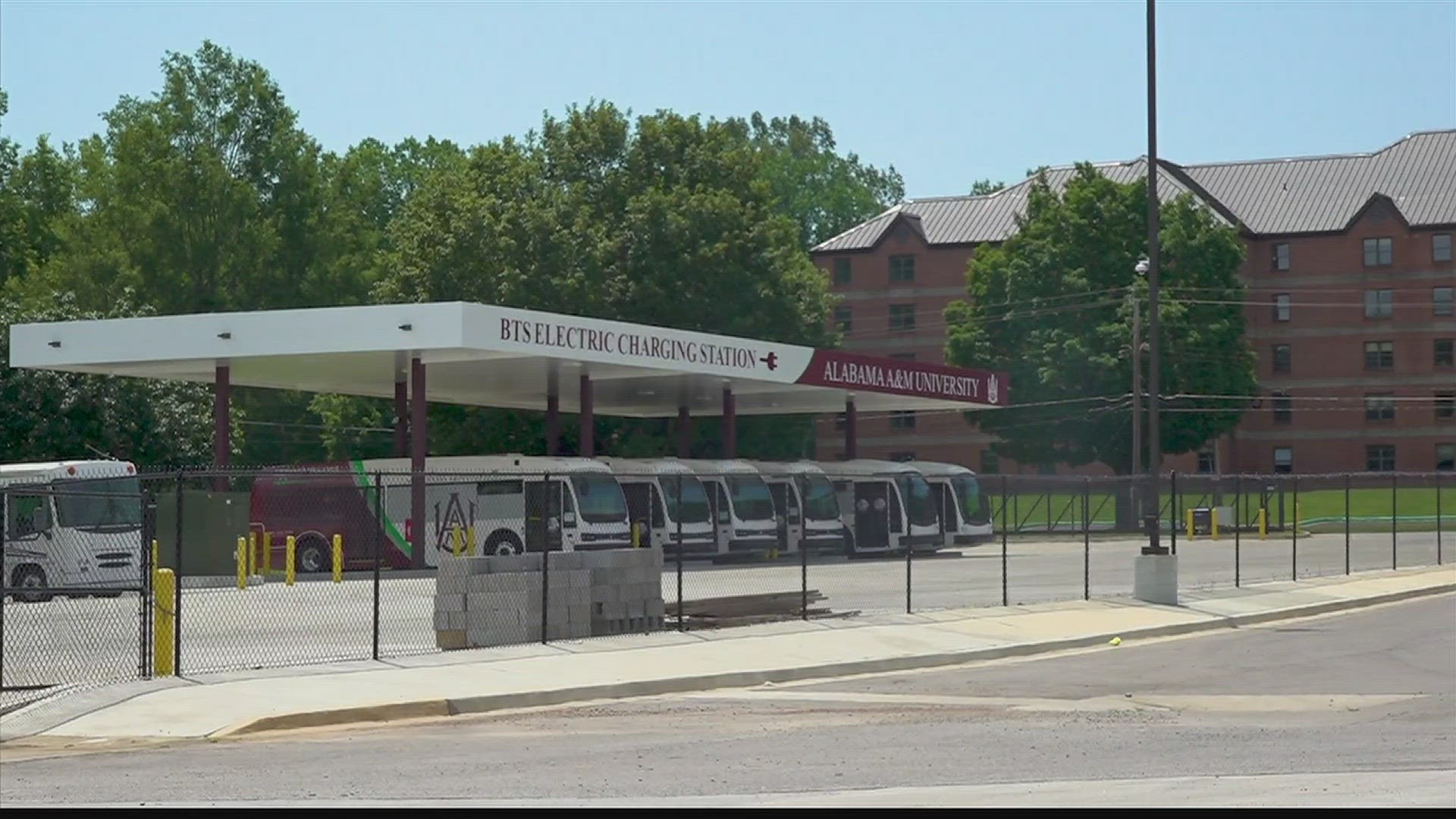HUNTSVILLE, Ala. — The U.S. Department of Transportation’s Federal Transit Administration (FTA) announced that Alabama A&M University’s Bulldog Transit System will receive $8.1 million in grant funding for upgrades, expansion of facilities, solar energy storage, and other projects. The grant will help the AAMU transit system transition to zero emissions.
“Our goal was to achieve a 100 percent green transit system,” said Director and principle investigator Marshall Chimwedzi. “This grant will allow us to reach that milestone in 2024. That’s huge for Alabama A&M and the entire community.”
Chimwedzi says AAMU was successful in the competitive grant process thanks to the momentum and commitment the University has shown toward being a responsible community member. “We are a high-tech city, and Alabama A&M should be a leader in championing innovative initiatives,” said Chimwedzi.
“This grant helps us to do that, while building on the work we’ve already started on the Hill.” AAMU Vice President for Business and Finance Carlton Spellman calls the grant transformational. "We're excited about what this means for the University and our community," Spellman said. "As one of only three universities and the only HBCU in the group of FTA grant awardees, it also allows A&M to help lead the way in created greener campuses and healthier environments for people to learn, work, and live."
Of the 130 awards totaling nearly $1.7 billion from President Biden’s Bipartisan Infrastructure Law, AAMU was the only Alabama awardee. In addition to expanding the University’s bus fleet by more than 60 percent, the project will make several key impacts:
- Transitions the Bulldog Transit System to 100 percent zero emission by 2024
- Creates a new microgrid using a battery electric storage system (BESS) to store excess solar energy
- Expands the footprint of the AAMU solar farm to 3 megawatts of solar power generation
- Generates at least 30 percent of campus electric energy consumption
- Provides AAMU-led green energy workforce development opportunities
- Expansion of the State’s largest Level 3 charging station
- New systems will create greater efficiency (e.g. new charging stations will reduce full-charge times from 4 hours to 15 minutes for buses)

